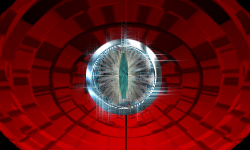the 1st and 2nd attentions according to zen
I have some insights into some sorcery terms and teachings coming from a zen/non-dual perspective. I think the two complement and enhance one another.
The 1st attention, according to CC, is our everyday ordinary awareness, the tonal, the first ring of power – the ring of doing.
The 2nd attention is extraordinary awareness, the nagual, the second ring of power – the ring of not-doing.
The emphasis for CC, to get from here to there, was on stopping the internal dialogue, not-doing, losing self-importance, dropping personal history, habits and routines, and dreaming (lucidly).
You might be surprised to notice that in non-duality, one accomplishes all these in one fell swoop, so to speak, by realising, through investigation, that the “I” (ego, or sense of self as seperate from the world and others) is simply non-existant. This so-called “I” is merely a bundle of thoughts which arise and pass away, just as all thoughts and objects are arising and passing away. The “I” has assumed itself to be real, to be the center of reality, the subject, but it is merely another object. The only true subject is the source (the unmanifest), and all manifest objects are arising from and passing away into this one source, which is labelled consciousness, awareness, being, that which is, etc.
Its just as CC’s tonal which has taken the throne from the nagual. Except it can never actually do so, just in appearance. The nagual is still the ground of being, no matter how much ranting and raving the tonal does, or appears to do.
So from my experience, the tonal or 1st attention is nothing other than identification with the “I” thought in which case seperation and the “I” struggling with and against the world or “other” are prevalent.
The 2nd attention describes the “stateless state” of this “I” merging back into its source or disappearing (same thing, different perspective) – no subject/object distinction: awareness and its content are one.
In the words of one non-dualist: “The commentary is what gives the impression of a “me” having thoughts. In the absence of the commentary, or when the “I” is seen through as mere commentary, it’s quite obvious that everything is happening of its own accord – no one is doing anything.”
Not-doing is not an exercise; it’s the way it already is!
That is where the emphasis lies in non-duality: that deeds are done but there is no personal doer; thoughts arise, but there is no thinker. If you look for the thinker, you will only find more thought-objects arising and passing away.
By realising the transitory nature of the “I”, by abiding in one’s natural state: naked consciousness, pure awareness, the items previously identified as personal history, self-importance, internal dialogue, not-doing, etc, need not be dealt with. In fact, that would only empower the 1st attention, the sense of personal doership. Instead of claiming these thoughts, ideas and descriptions as one’s own, they are simply thought-objects arising as consciousness (notice I didn’t say “in consciousness” which would be dualistic).
But these are just descriptions, or as advaitists would say, “concepts”. It has to be more than mental understanding, or any kind of understanding, which implies an “I” who understands. Sounds alot like intent, doesn’t it. For CC, there is much to practice and much effort to put in to recapitulating and working on self-importance, etc. But for the non-dualist, “you” cannot do this. “You” cannot do anything. “You” are not a doer, but what is being done. All effort arouses the “I-sense” and maintains the 1st attention and the world. For a non-dualist, there is nothing to be done, nothing needs to be changed, enlightenment and freedom already are the nature of what is. THIS is all there is. The ordinary IS the extraordinary. Nirvana IS Samsara; Samsara IS Nirvana. You can never not be THIS.
I think that the difference between non-dualists and sorcerers is that sorcerers dont mind “leaving” the “I-less state” in order to manipulate reality (controlled folly) whereas it seems rare for the non-dualist to capitalise on this. Patanjali is one of the few who has devoted any attention to describing the powers that become available.

 D5 Creation
D5 Creation
Comments are Closed